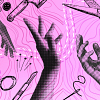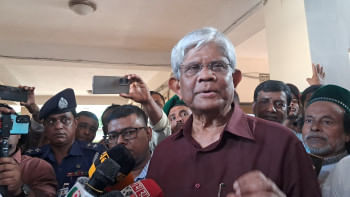How the fantasy behind “men written by women” falls short of expectations

"Men written by women" is a loosely defined concept which started gaining popularity with the rise of 2020-2021 TikTok trends and has now become a part of the general Gen-Z internet lexicon. According to the Internet, the trope describes men who fit the female gaze and are figuratively, and often literally, written by a woman. They are socially aware, aren't afraid to show their emotions, and break gender norms. Often, they seem too good to be true, since, after all, most of them are made-up fictional characters.

Fictional men written by women are undoubtedly some of the most detailed and genuine characters to exist in literature, so it is no wonder why we are so enamoured with them. Think of Four from Divergent, Peeta Mellark from The Hunger Games, and of course Fitzwilliam Darcy from Jane Austen's 19th century classic novel Pride and Prejudice. These characters have their own motivations and complex backstories that make them strong and multi-faceted, making them fun and compelling to read about.
However, the concept is taken a bit less literally as videos of popular male celebrities like Harry Styles, Timothée Chalamet, Hozier, members of BTS, and more are rampant under the TikTok hashtag currently amassing over 120 million views.
Despite being real people, the internet has unanimously dubbed these men as written by women since they seem to fit the criteria for the fictional trope. However, we don't know any of these celebrities personally. So, we can only assume their personalities from what they share with the world. Our classification of them as "men written by women" is a projection of our fantasies based on parasocial relationships and desire for perfectionism.
But putting real men on the same level as fictional ones can sometimes be problematic, as they antiquate stereotypes of idealising men for doing the bare minimum. An ugly side of this can be seen in the travesty of the "wife guys" – male celebrities heavily publicising their obsession with their wives and monetising their supposedly perfect relationship which, unsurprisingly, often does not end well.
The opposite side of the coin, "women written by men", has been a topic of much contention for decades online but has recently resurfaced to describe the unrealistic, sexist outlook male directors and writers often seem to have of women on and off screen.
Both tropes are embodiments of the male and female gaze and all the fantasies they encompass respectively. While the former pigeonholes women into one-dimensional fantasies, the latter seeks to redeem men by infusing their fictional selves with more warmth.
Of course, that doesn't mean male authors are incapable of writing a three-dimensional female character, or that female authors don't also hypersexualise their male characters sometimes, but those are the outliers, not the norm. This paints a bleak picture of how society views gender roles and how opposing genders view themselves. In other words, the "men written by women" trope paints a utopian vision of what masculinity could be, while also highlighting the tragedy of fragile masculinity and contemporary gender norms.
Sara Kabir is a dreamer, a Literature graduate, and a writer. She is often found juggling academics and her countless hobbies. Follow her @scarletfangirl on Instagram for more.

 For all latest news, follow The Daily Star's Google News channel.
For all latest news, follow The Daily Star's Google News channel. 









Comments